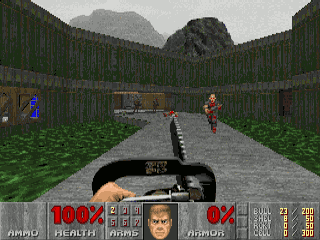It seemed great in 2004-2005 when I was looking at Nexon’s business model. Now I’m totally not sure about the gain. It even might be bad for long term business.
Everybody focus on one thing: OMG users spending money with in-app transactions are spending a lot, an average of 14$ according to some studies this year. Also, the traction of freemium business model is big and growing fast. People love free products? No shit.
I have two problems with that: how many people are actually paying, what is the ratio download free game/ buy stuff in it?
Flurry has the answer:
Flurry data shows that the number of people who spend money in a free game ranges from 0.5% to 6% depending on the quality of the game and its core mechanics.
I mean, 94% to 99.5% of people don’t spend anything? This is unsustainable, period. Considering the amount of work to make a quality game, this is madness. Making games is not like an exact science so as a developer, you need financing as fast and as much as possible and with rates like that, it’s suicidal. Of course it could change but when people are used to something free or almost free, they usually don’t like paying, or paying more. See the $0.99 “default” mobile app price that killed so many developers.
Moreover, I think people are paying right now because it’s still new. But the more they will have bad experiences (and it will happen), the less they will trust the freemium thing.
So basically you are dependent on a really, really small part of your entire customer base. If they leave or stop buying things, revenue hits the ground faster than a punk in Streets of Rage ( btw did you play the remake? It’s fantastic).
Also, it creates an abusive relationship with the whale-customer, as you want him to continue to buy stuff. Milking him. Using everything you can to retain him or abuse his network, email etc. That totally sucks and you don’t have choice if you want this model to work, you need to do that and do it well. That’s the thing.
Making a good game is very difficult. I totally understand that customers want to try before paying. But if he/she likes it, I don’t see anything wrong asking some money for that. Geez, everything out there in the world works like that and you usually don’t even get a free sample. This all F2P vortex is not balanced. Financing needs to be done by customers and not investors who will want some return -you know what I’m sayin’- out of that.
I do believe that the shareware, Steam or Minecraft models are pretty much perfect. Torchlight. I don’t like this kind of universe but I knew it was a good game. I downloaded the demo. Got hooked immediately, paid the full game and spent 30 hours on it. The developer got his money right away and even if I could have spent the 15 bucks with in-game transactions, maybe I would have been a cheap ass and totally tried not to buy anything. Maybe I would have disliked the game because it would have been designed so that I grind more until I have no choice but buy armors and +30 swords with real dinero.
If you charge the game and then charge for items or services, you screw people up. Where does it end then? Will I have to pay to just log in soon?
That’s a scammy mindset. I don’t like that. I want to instill respect and a nurturing environment where the developer can live out of his work and customers are happy.
Is that wrong?
Dreams of huge customer base, IPOs, selling to Google or any business plan based on short-sighted terms and big exits are just not compatible with computer games and how we make them. Because it’s all about crafting.







